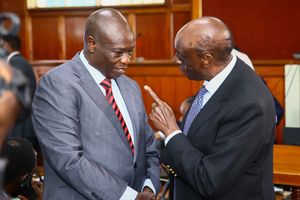Place of teachers in society

The Teachers Service Commission (TSC) headquarters in Upper Hill, Nairobi.
World Teacher Day is celebrated every October 5 in honour of the place of teachers in society and how they continually shape the future of the youth.
Teachers not only impart academic knowledge but in many ways influence students through their opinions and attitudes. They often speak excellence or doom over students’ lives; many of us are a testament and product of interactions with them in our early academic years.
Many of us are familiar with the now-catchy phrase “mwalimu wa math ulisema siwezi enda mbali, hapa ni wapi? (I made it despite my maths teacher’s curse)”—which, thanks to the humour it evokes, has been a widely used caption in social media.
This is proof of the influence teachers hold over their students and why it is important for them to offer positive guidance and mentorship.
Kenyan teacher Peter Tabichi won the 2019 Global Teacher Prize for being a positive and humanitarian influence to his students and community. This highlights the rightful place of teachers as custodians of knowledge and influence over their students.
However, what some teachers fail to appreciate is that most of the students they deem rebellious, inattentive or unproductive could benefit from a different pedagogy, safe conversations about their home environment or open dialogue for them to openly express their troubles in school, which could be associated with health issues, bullying and so on.
There is an important place for capacity building within the profession, where teachers can benefit from training on how to use engaging pedagogy, how to best deal with different types of students and how to apply emotional intelligence in their practice. This could also help to curb the increasing cases of corporal punishment in schools, which have sometimes resulted in fatal injuries.
Lastly, the Education ministry and other relevant state agencies ought to appreciate the importance of policy regulation in the academic space for the continuous benefit of both teachers and students.
- Ms Nnanguttu is a lawyer and lifestyle writer.



